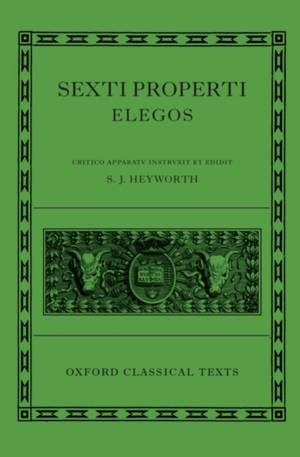
- Afhalen na 1 uur in een winkel met voorraad
- Gratis thuislevering in België vanaf € 30
- Ruim aanbod met 7 miljoen producten
- Afhalen na 1 uur in een winkel met voorraad
- Gratis thuislevering in België vanaf € 30
- Ruim aanbod met 7 miljoen producten
Zoeken
Omschrijving
Propertius is a poet of the Augustan period, a successor of the great Hellenistic elegiac poets Callimachus and Philitas, and a precursor of Ovid. His account of his fictionalized affair with his beloved alter ego Cynthia is the purest expression of the spirit of love elegy, setting them as a pair against war, epic and (apparently) Augustus himself. The treatment of their love is tender and at times delightfully macabre, in pursuing their love beyond the grave. This is a text read by virtually all students of Classical Latin, and it is now available in a radical new edition, more readable and based on the latest research into the manuscript tradition. This is fully explained in the English preface, which also contains important comments on the way texts are edited and read. Some significant emendations discovered in the papers of A. E. Housman are published here for the first time.
Specificaties
Betrokkenen
- Uitgeverij:
Inhoud
- Aantal bladzijden:
- 304
- Taal:
- Engels
- Reeks:
Eigenschappen
- Productcode (EAN):
- 9780198146742
- Verschijningsdatum:
- 9/02/2008
- Uitvoering:
- Hardcover
- Formaat:
- Genaaid
- Afmetingen:
- 131 mm x 192 mm
- Gewicht:
- 371 g

Alleen bij Standaard Boekhandel
+ 203 punten op je klantenkaart van Standaard Boekhandel
Beoordelingen
We publiceren alleen reviews die voldoen aan de voorwaarden voor reviews. Bekijk onze voorwaarden voor reviews.










